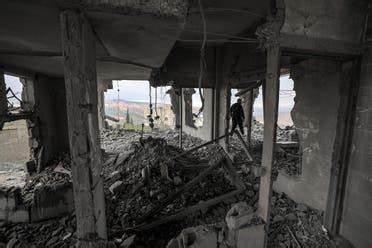‘Palestinian economy lies ‘in ruins’ after 11 months of war in Gaza’

Gaza’s economy has shrunk to less than a sixth of its size when the Israel-Hamas war began nearly a year ago, while unemployment in the occupied West Bank has nearly tripled, a UN report said on Thursday, underscoring the challenges of reconstruction.
The report by the United Nations Conference on Trade and Development (UNCTAD) described Gaza’s economy as “in ruins” more than 11 months after Israel launched a military campaign there that has reduced much of the Strip to rubble in response to the October 7 attacks.
UN Trade and Development (UNCTAD) has released a comprehensive report detailing the profound economic destruction that has gripped the Occupied Palestinian Territory in the aftermath of the Israeli military operation in Gaza that followed the October 7 attacks.
The report highlights the staggering scale of economic devastation and unprecedented decline in economic activity, far surpassing the impact of all previous military confrontations in 2008, 2012, 2014 and 2021.
Inflationary pressures combined with soaring unemployment and collapsing incomes, have severely impoverished Palestinian households.
The military operation led to unprecedented loss of life, displacement, and widespread destruction of infrastructure. Meanwhile, the West Bank experienced a surge in violence, demolition of Palestinian assets, confiscations, and settlement expansions.
The combined impact of the military operation in Gaza and its repercussions in the West Bank delivered an unparalleled shock that overwhelmed the Palestinian economy across the occupied Territory, including East Jerusalem.
By early 2024, between 80% to 96% of Gaza’s agricultural assets -including irrigation systems, livestock farms, orchards, machinery, and storage facilities – had been decimated, crippling the region’s food production capacity and worsening already high levels of food insecurity.
The destruction also hit the private sector hard, with 82% of businesses, a key driver of Gaza’s economy, damaged or destroyed. The damage to the productive base has continued to worsen as the military operation persists.
Gaza’s Gross Domestic Product (GDP) plummeted by 81%in the last quarter of 2023, leading to a 22% contraction for the entire year. By mid-2024 Gaza’s economy had shrunk to less than one-sixth of its 2022 level.
Meanwhile, the West Bank has been undergoing a rapid and alarming economic decline. The report highlights factors such as settlement expansion, land confiscations, demolition of Palestinian structures, and increased settler violence throughout 2023 -2024 to have displaced communities and severely impacted economic activities.
These disruptions have affected various sectors across the West Bank, including East Jerusalem, where commerce, tourism and transportation have suffered a considerable downturn.
As a result, 80%of businesses in the East Jerusalem Old City have either partially or completely ceased operations.
The initial optimism of a 4% GDP growth in the West Bank during the first three quarters of 2023 was abruptly reversed by an unprecedented 19% contraction in the fourth quarter.
This sharp downturn resulted in an overall annual GDP decline of 1.9%. Additionally, per capita GDP decreased by 4.5%, indicating a substantial drop in living standards and household incomes.
Labor market conditions in the West Bank have deteriorated significantly, with 96% of businesses reporting decreased activity and 42.1% reducing their workforce.
A total of 306,000 jobs have been lost, pushing West Bank’s unemployment rates from 12.9% before the conflict to 32%.
These job losses have resulted in an estimated daily labor income loss of $25.5 million, severely eroding the economic resilience of Palestinian households and exacerbating social hardships.
In 2023, international donor support fell to its lowest level at $358 million equivalent to just 2% of GDP, down from $2 billion, or 27% of GDP in 2008.
Since October 2023, revenue deductions and with holdings by Israel have escalated totaling over $1.4 billion between 2019 and April 2024. This amount represents 8.1% of Palestine’s GDP in 2023, leading to significant budgetary shortfalls.
These fiscal challenges have hampered the government’s ability to pay employees, service debts, and maintain critical public services such as healthcare and education.
The situation has also led to growing debt, delayed payments to private suppliers, and reduced social transfers to the poor. Public employees have only been paid partial salaries since November 2021.





